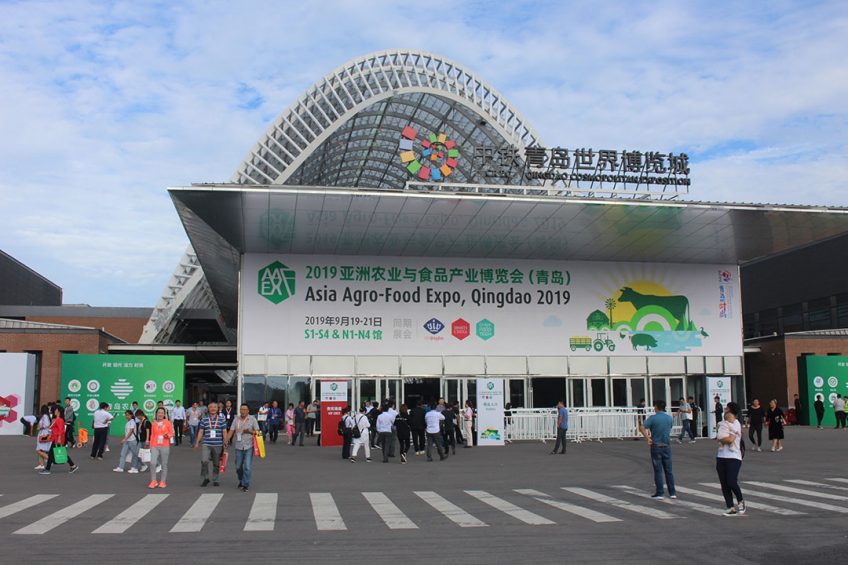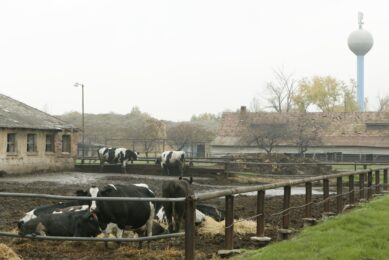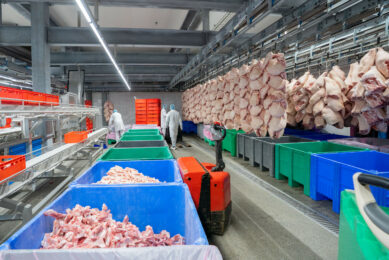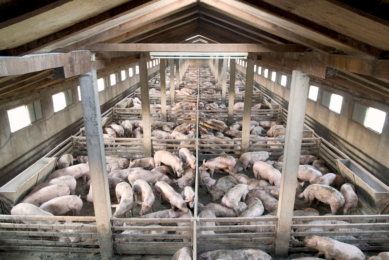VIV Qingdao: The start of a new formula in China

VIV exhibitions in China are nothing new but the inaugural edition of VIV Qingdao signalled a new era in the Chinese events calendar. From 2019 the event will be held every year in September in Qingdao’s impressive Cosmopolitan Exposition centre. Pig Progress was there to visit and find out more.
Held concurrently with an international horticulture event on the opposite side of the venue, and under an umbrella event named Asia Agro Food Expo 2019 (AAFEX), VIV Qingdao was an important part of a multifaceted event covering 3 days in mid-September. The organisers were happy to report a 25% increase in visitors compared to VIV China 2018, with 4,000 of the more than 20,000 total registered visitors coming specifically for one of the many side events, such as the Animal Disease Monitoring and Biosecurity Forum (see box). The showground itself was typically huge for China, with 450 exhibiting companies from over 30 counties and regions covering over 50,000 m2 of exhibition space.
“Generally speaking, the show has met our expectations,” explained Isabel Yuan, project manager of VNU Exhibitions Asia, which took over the running of this year’s event from their Dutch-based counterparts.
“It’s the first edition since the VIV China local team took charge of all the business for VIV in China. At the same time, we moved to Qingdao this year, a new city for us. Fortunately, the result has been satisfactory.”
Although the recent outbreaks of ASF are still creating uncertainty in the domestic market, it is also creating opportunities. Yuan explains, “the Chinese animal husbandry industry is accelerating its upgrading. Some small farmers will be weeded out. Meanwhile, some big farming companies will become stronger. So both need to find their own new opportunities in the market and the VIV show is still their first choice for doing so. On the other hand, VIV is traditionally strong on poultry. Due to ASF the need for poultry products is growing fast which will lead to prosperity in the related industry. So in that sense we haven’t lacked exhibitors or visitors, but of course, we can always do better next year”.
Innovations rewarded
New at this year’s event were the InnovAction awards with 26 innovative products displayed in the InnovAction area in hall 1.
2 types of InnovAction awards were made:
- ‘Innovative Product of the Year’ which was judged by a panel of experts that Misset (publisher of Pig Progress) was invited to join.
- ‘Most Popular Product of the Year’ voted for on WeChat.
The voting campaign lasted a week with around 4,000 people voting for the 49 products on the shortlist. The top 3 in each sector with the most votes were announced as winners of the award.
One of the winners in the Feed category was Shanghai Menon Animal Nutrition Technology with their coated sodium butyrate product, Menoso 70. Winning in the ‘Innovative Product of the Year’ category selected by an independent panel of judges, the product uses special technology to protect powder sodium butyrate. This technology ensures that the sodium butyrate content in the finished product actually reaches 70%, and also reduces the loss of sodium butyrate in feed granulation, improves the rate of gastric crossing and the efficiency of releasing sodium butyrate in the intestinal tract. “This product took 3 years to develop,” explained Sunny Wu, overseas marketing manager at Menon, “and is now distributed to 25 countries globally. We manufacture the product here in China because the cost of raw materials is lower.”

With 500 tonnes exported to Vietnam alone for use in pig and poultry farming, VIV Qingdao offered an opportunity for them to make contact with customers from the domestic market and further afield.
Positive exhibitor experience
Response to the event among the participating exhibitors was positive. Shandong Longchang, a Chinese supplier of bile acids which operates both domestically and internationally, noted that the VIV Qingdao was better for them than the previous tradeshow in Nanjing. “Here in Qingdao, not only has the number of visitors to our booth been very high but the quality, too,” said Betty Liu, overseas manager at Shandong Longchang. When asked why they had opted for the VIV event and not EuroTier, which was taking place concurrently, Liu explained, “as most customers will be in the same city and probably visit both events it made more sense to choose to exhibit at just one. We chose VIV because they have experience in China while this is the first time for Eurotier.”
Yuan also noted the positive feedback from exhibitors. “Exhibitors were appreciative of the changes to the show this year, with upgrades in content and service and a focus on the InnovAction awards. As this was the first VIV 2.0 show in China completely managed by VNU Exhibitions Asia, we are very optimistic about the future of VIV in China,” she concluded.
Biosecurity is key in times of ASFWith African Swine Fever (ASF) in China, it was interesting to see how the topic of biosecurity was addressed at VIV Qingdao. As part of a range of side-events, VIV Qingdao had also planned a side-event on biosecurity.
|
Co-author: Vincent ter Beek, editor of Pig Progress











